
Blood Glucose Fasting and Post Prandial
Blood Glucose Fasting and Post Prandial
Diabetes is a chronic condition that is characterized by elevated blood glucose/sugar levels for longer periods which may lead to serious health disorders such as hypertension, kidney diseases, heart diseases, eye diseases, etc.
Fasting Blood glucose (FBS) and post-prandial blood glucose (PPBS) are the blood sugar tests that measures the levels of sugars in the blood. The results from these tests determine whether one has diabetes or not.
Glucose is a simple sugar that serves as the main fuel for the production of energy in the body.
What is Fasting Blood glucose (FBS) and post-prandial blood glucose (PPBS) tests used for?
FBS, PPBS and RBS (Random Blood Sugar) are used to determine:
• Risk of diabetes
• Diabetes management
• Diabetes treatment response
• Levels of blood sugar in the body
Symptoms of Diabetes
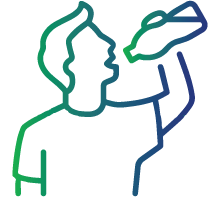
Feeling thirsty very often

Feeling hungry often
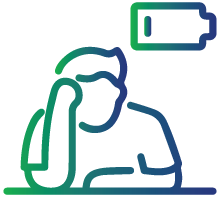
Fatigue
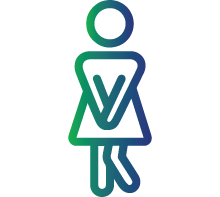
Urinating a lot
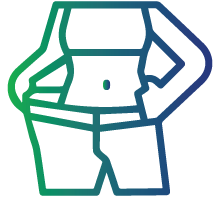
Losing weight without efforts
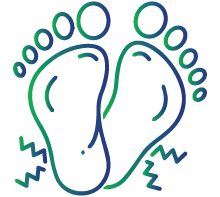
Numbing or tingling of hands and feet
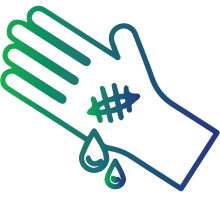
Slow healing of any cuts or wounds
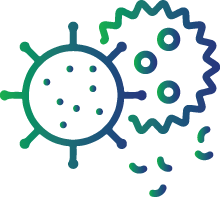
Having infections more than usual

Dry skin
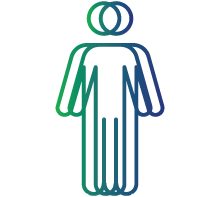
Blurred vision
Who should get tested?

Age over 45 years
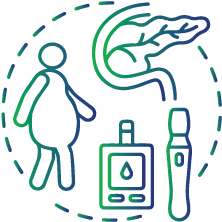
Prediabetes
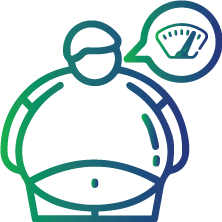
Overweight or obese

Family history of diabetes
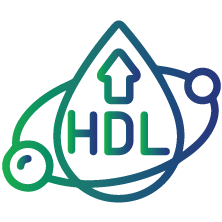
High cholesterol
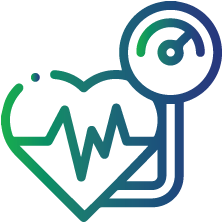
High Blood Pressure
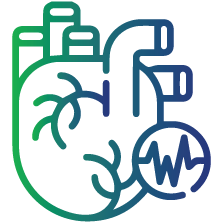
Heart diseases
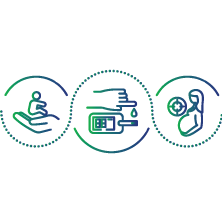
Gestational diabetes
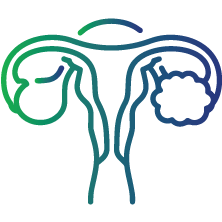
Poly Cystic Ovarian Syndrome (PCOS)
Test preparation
A fasting blood sugar test requires an individual to fast at least for about 8 – 10 hours before taking the test. Post-prandial blood glucose test requires an individual to have a proper meal 2 hours before taking the test.
For each of the two tests, your healthcare provider will insert a small needle into a vein in your arm and collect a few mL of blood into a sterile test tube.
Please talk to your healthcare provider if you are on any medications
Interpretation of the Test Results
Interpretation of test results:
|
Results |
Fasting blood sugar (mg/dl) |
Post-prandial blood sugar (mg/dl) |
|
Normal |
70-100 |
140 and below |
|
Pre-diabetes |
100-125 |
140-199 |
|
Diabetes |
126 and above |
200 and above |
Deviations from normal levels indicates the following:
Your results may indicate you have diabetes or are at risk of developing it if they show higher than normal glucose levels. In addition, high glucose levels could indicate:
• Hyperthyroidism
• Pancreas disorders
• Stress following surgery, a life-threatening illness, or trauma
If you have diabetes, your blood glucose levels may be lower than normal for a variety of reasons, including:
• Eating insufficiently, particularly after taking diabetes medication
• Exercising more frequently than usual
Low blood sugar levels without diabetes may indicate:
• Liver disease
• Kidney disease
• A hypoactive thyroid, pituitary, or adrenal gland (hypothyroidism)
• Addiction to alcohol
A medical condition that requires treatment may not always be present if your glucose results are not normal. Stress and particular medications can both impact glucose levels. Speak to your healthcare provider to find out what your test results mean
FAQs
Do I have pre-diabetes if my fasting blood sugar is 102 mg/dl?
You are considered to have pre-diabetes when either:
• You have a fasting blood glucose level of 100 to 125 mg/dl, or
• Your Post-prandial blood glucose/random blood glucose is between 140 and 199 mg/dl.
How can I manage my blood sugar levels?
To manage blood sugar levels, one needs to have a plan of action. It includes,
• Keep a close watch on sugar levels on a regular basis
• Pay attention to blood pressure
• Keep a check on cholesterol levels
• Exercise regularly
Consume proper diet
Can I know my average blood sugar levels?
Yes, by undergoing an HbA1c (glycated haemoglobin) test one can know the average of their blood sugar levels over the past three months. It helps in diagnosing type 2 diabetes. People with diabetes are recommended to take HbA1c test in every 3 to 6 months to keep a close watch on their blood sugar levels
Can I drink coffee before fasting blood sugar test?
No, not even black coffee should be consumed before taking fasting blood sugar test. If it is necessary, then you can consume plain water before the test
What are the best foods to lower my blood sugar?
A meal plan must be tailored according to an individual's specific needs. Testing your glucose levels at different times of the day will show you how your foods are affecting your levels. Eat high fibre foods, drink lots of water, and focus on eating veggies, legumes, and fish
Related tests
HbA1c (Glycated Haemoglobin)
₹ 480-
Includes
1 Test Parameter(s)
-
The hemoglobin A1c test or HbA1c test checks for the levels of glycosylated hemoglobin. This test is used to determine average glucose levels in the blood during the past 2-3 months. It is a common blood test used to diagnose and monitor diabetes mellitus. Furthermore, because the HbA1c blood test does not require fasting, it is more comfortable for patients.
Complete Blood Count (CBC)
₹ 300-
Includes
1 Test Parameter(s)
-
Complete blood count (CBC) is a type of blood test that helps determine an individual's overall health. This test evaluates red blood cells that carry oxygen from the lungs to the rest of the body and white blood cells , which fight infections and other diseases. There are five major types of white blood cells, and the CBC test measures the total number of white cells in the blood.CBC test includes an absolute and differential count of basophil, eosinophil, lymphocyte, monocyte, and neutrophil that measures the levels of these cells in the blood. CBC also measures the levels of platelets, which help prevent and stop bleeding. Hemoglobin is a protein in red blood cells, and the Mean corpuscular hemoglobin (MCH) test measures the average amount of hemoglobin in each red blood cell, mean corpuscular hemoglobin concentration (MCHC) test determines the average concentration of hemoglobin in a single red blood cell (RBC). Hematocrit/ Packed Cell Volume (PCV) measures the proportion of red blood cells, and red cell distribution width (RDW) evaluates the differences in the volume and size of your red blood cells. Mean corpuscular volume (MCV) measures the average size of the red blood cells. Complete blood counts can help detect various disorders, including infections, anemia, and diseases affecting blood components.
Tests At Lupin Diagnostics
Complete Blood Count (CBC)
₹ 300-
Includes
1 Test Parameter(s)
-
Complete blood count (CBC) is a type of blood test that helps determine an individual's overall health. This test evaluates red blood cells that carry oxygen from the lungs to the rest of the body and white blood cells , which fight infections and other diseases. There are five major types of white blood cells, and the CBC test measures the total number of white cells in the blood.CBC test includes an absolute and differential count of basophil, eosinophil, lymphocyte, monocyte, and neutrophil that measures the levels of these cells in the blood. CBC also measures the levels of platelets, which help prevent and stop bleeding. Hemoglobin is a protein in red blood cells, and the Mean corpuscular hemoglobin (MCH) test measures the average amount of hemoglobin in each red blood cell, mean corpuscular hemoglobin concentration (MCHC) test determines the average concentration of hemoglobin in a single red blood cell (RBC). Hematocrit/ Packed Cell Volume (PCV) measures the proportion of red blood cells, and red cell distribution width (RDW) evaluates the differences in the volume and size of your red blood cells. Mean corpuscular volume (MCV) measures the average size of the red blood cells. Complete blood counts can help detect various disorders, including infections, anemia, and diseases affecting blood components.
HbA1c (Glycated Haemoglobin)
₹ 480-
Includes
1 Test Parameter(s)
-
The hemoglobin A1c test or HbA1c test checks for the levels of glycosylated hemoglobin. This test is used to determine average glucose levels in the blood during the past 2-3 months. It is a common blood test used to diagnose and monitor diabetes mellitus. Furthermore, because the HbA1c blood test does not require fasting, it is more comfortable for patients.
Blood Glucose Fasting (FBS)
₹ 60-
Includes
1 Test Parameter(s)
-
Blood Glucose Fasting, also known as the Fasting Blood Plasma Glucose (FPG) test, measures fasting blood glucose level. Fasting means one should not eat or drink (anything except water) for 8 hours before taking the blood sample. This plasma glucose test helps determine if the body can utilize or store glucose efficiently. FBS plasma test is one of the tests done to evaluate diabetes mellitus and monitor treatment efficacy in patients undergoing diabetes treatment. It also helps to detect diabetes during pregnancy or gestational diabetes.
Blood Glucose Post prandial (PPBS)
₹ 60-
Includes
1 Test Parameter(s)
-
Post-prandial blood glucose is a common test used to measure the level of PP blood sugar present after two hours of a meal. In patients with diabetes, there may be abnormal spikes of blood glucose level after meals; The postprandial blood sugar test indicates how the body responds to the intake of sugar and carbohydrates after a meal and is indicated for monitoring people with pre-diabetes, type-1, and type-2 diabetes
Complete Urine Examination
₹ 110-
Includes
1 Test Parameter(s)
-
Complete urine examination or complete urine test includes a physical, chemical, and microscopic examination of urine. Urine color and transparency are assessed during a physical exam. A chemical examination checks blood, bilirubin, ketones, and urine glucose levels. While microscopic examination helps detect pus cells, RBCs, bacteria, and other cells. Urine complete analysis tests help diagnose conditions like kidney diseases, urinary tract infections, and other metabolic disorders.

